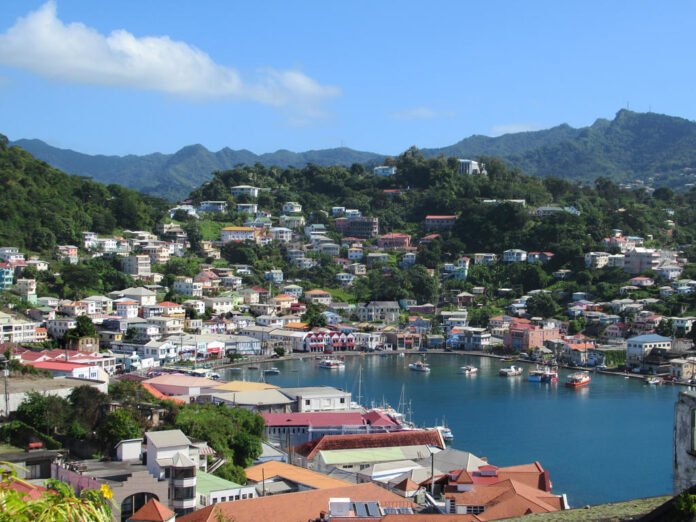Costa Rica’s healthcare system is a dual model composed of a robust public system and a growing private sector. Both offer quality care, but they differ significantly in cost structure, accessibility, and flexibility. Understanding the similarities and differences between Costa Rica’s public and private health insurance can help residents, expats, and medical tourists make informed healthcare choices.
Public Health Insurance: Universal, Comprehensive, and Affordable
Costa Rica’s public healthcare is primarily administered through the Caja Costarricense de Seguro Social (CCSS), commonly referred to as La Caja. It is a universal system, mandatory for all citizens and legal residents. Funded by income-based contributions (typically 7–11% of monthly income), it offers comprehensive coverage including primary care, specialist visits, hospitalization, surgery, dental, maternity, mental health services, and medications. Services are delivered through a network of over 30 public hospitals and 250+ clinics, with initial care coordinated by local EBAIS (Basic Health Care Teams).
An important extension of the public system is the non-contributory regime, which provides free coverage for the most vulnerable populations—such as the elderly without income and indigent citizens—funded entirely by the government.
One of the greatest strengths of Costa Rica’s public health system is its preventive approach, which includes widespread vaccination programs, maternal and child healthcare, chronic disease management, and public health education. Additionally, emergency care is free for everyone, including tourists and non-residents.
However, public healthcare can suffer from long wait times, especially for specialist services and non-emergency surgeries. To address this, public-private partnerships have been formed where private clinics assist with outpatient consultations under CCSS contracts.
Private Health Insurance: Speed, Choice, and Comfort
The private healthcare sector offers faster access, English-speaking doctors, and modern facilities, appealing particularly to expats and medical tourists. The largest government-owned insurer, the Instituto Nacional de Seguros (INS), provides plans that cover up to 70% of routine care and 100% of surgeries (up to $17,000), along with dental and optometry benefits. Premiums start around $50/month.
International insurers like Cigna Global and MAPFRE, along with regional providers like BMI and ASSA, offer a range of flexible plans with varying degrees of coverage—some even include global care and emergency evacuation. These plans are not income-based and are available to both residents and non-residents.
Key Similarities and Differences
Both systems provide access to high-quality care and a wide array of medical services. However, public insurance is universal and income-based, while private insurance offers more immediate access and tailored plans at a higher cost. The public system emphasizes preventive and equitable care, while the private sector prioritizes convenience and comfort.
Top Public Health Insurance Options in Costa Rica
Costa Rica is internationally recognized for its strong public healthcare system, often praised for its efficiency, universal coverage, and affordability. The nation’s primary public health insurance is administered by the Caja Costarricense de Seguro Social (CCSS), commonly referred to as “La Caja.” Unlike many other countries, Costa Rica essentially offers one unified public health insurance system, and it is the backbone of the nation’s healthcare infrastructure.
1. Caja Costarricense de Seguro Social (CCSS)(Official website: https://www.ccss.sa.cr)
- Cost:
Contributions to the CCSS depend on income. Employed individuals contribute approximately 9-15% of their income, which is split between the employee and employer. Self-employed individuals pay a variable rate based on their declared income, typically around 13-15%. Retirees and foreign residents can voluntarily enroll by paying a monthly fee, which often ranges from $50 to $150 USD, depending on income and status. - Available Services/Coverage Features:
The CCSS covers a wide spectrum of healthcare services including preventive care, diagnostics, treatment, surgeries, hospitalization, maternity care, chronic disease management, and prescriptions. It also includes mental health services, dental care, and rehabilitation therapies. Emergency services are universally provided, regardless of insurance status. - Open for All or Limited:
The system is open to all residents—citizens, permanent residents, and legal foreign residents—provided they contribute to the CCSS. Even undocumented individuals can access emergency care. Participation is mandatory for legal residents in Costa Rica, including retirees and expatriates applying for residency status. - Core Financial Features:
One of the most notable features is universal risk pooling—contributions go into a single fund used to provide care for all. There are no co-pays or deductibles for most services under the CCSS, which helps reduce financial barriers to access. Prescription drugs are included in the coverage, though availability may vary depending on location and inventory. - Consumer Satisfaction Score:
Overall, the CCSS enjoys moderate to high consumer satisfaction, particularly due to its low cost and accessibility. According to local surveys and international health assessments, satisfaction scores range between 75% and 85%. However, challenges such as long wait times for non-emergency specialist services or elective procedures can affect patient experiences. Despite this, the majority of Costa Ricans trust and prefer the public system over private alternatives for routine and emergency care.
Top Private Health Insurance Providers in Costa Rica
Costa Rica’s private health insurance market complements the public system by offering faster access, wider provider choice, and additional benefits, especially popular among expatriates and those seeking premium care. Here are the top five private health insurers in Costa Rica, described individually with details on cost, coverage, eligibility, financial features, and consumer satisfaction.
1. Instituto Nacional de Seguros (INS)(Official website: https://www.ins-cr.com)
- Cost: Plans typically start around $50 per month, with premiums varying based on coverage level and age.
- Available Services/Coverage Features: INS covers about 70% of routine care costs and 100% of surgery and anesthesia costs (up to $17,000 per incident). Coverage includes dental, optometry, private hospital access, maternity, and annual check-ups.
- Open for All or Limited: Open to residents and non-residents, with flexible enrollment options. Popular among local residents and expats.
- Core Financial Features: Fixed monthly premiums, with some co-pays for outpatient visits and prescriptions. Provides financial protection against high-cost procedures.
- Consumer Satisfaction Score: Generally positive, with scores around 80%, praised for reliability and comprehensive coverage.
2. Cigna Global(Official website: https://www.cignaglobal.com)
- Cost: Premiums start at approximately $100–$200 per month, depending on plan level (Silver, Gold, Platinum).
- Available Services/Coverage Features: Offers extensive global coverage including inpatient, outpatient, mental health, cancer care, emergency evacuation, maternity, and specialist treatments. Access to private hospitals and English-speaking doctors is a highlight.
- Open for All or Limited: Open internationally to residents and expats, with customizable plans.
- Core Financial Features: Flexible deductible and co-pay options, high coverage limits (up to unlimited), and global claims support.
- Consumer Satisfaction Score: Very high, averaging 85–90%, especially favored by expats for its global network and customer service.
3. BMI Costa Rica(Official website: https://www.bmihealthcare.co.uk (Note: BMI is UK-based but offers international plans)
- Cost: Varies widely; basic plans start around $60–$100 per month, depending on coverage scope.
- Available Services/Coverage Features: Provides plans for hospitalization, outpatient care, maternity, preventive care, and chronic disease management. Also includes some dental and vision coverage.
- Open for All or Limited: Available to both residents and expatriates; some plans may have limited enrollment periods.
- Core Financial Features: Offers tiered plans with deductibles and co-insurance options to control premium costs.
- Consumer Satisfaction Score: Moderate to high, approximately 75–80%, with customers appreciating plan flexibility.
4. ASSA Compañía de Seguros(Official website: https://www.assa.com)
- Cost: Plans generally start at $70 per month, with comprehensive options increasing the price.
- Available Services/Coverage Features: Covers hospitalization, outpatient services, preventive care, maternity, dental, and vision. Often bundled with life and accident insurance products.
- Open for All or Limited: Available to residents and expats; some plans are designed for families and individuals alike.
- Core Financial Features: Monthly premiums with co-pays for outpatient visits and prescription drugs; options to customize coverage limits.
- Consumer Satisfaction Score: Good reputation with satisfaction rates around 78%, appreciated for customer support and claim processing.
5. MAPFRE Costa Rica(Official website: https://www.mapfre.com)
- Cost: Premiums start around $80 per month for basic plans, with higher tiers available.
- Available Services/Coverage Features: Broad coverage including hospitalization, outpatient care, emergency services, maternity, dental, and chronic disease management. Offers corporate group plans as well.
- Open for All or Limited: Open to individuals, families, and companies; flexible enrollment policies.
- Core Financial Features: Monthly premiums with varying deductibles and co-pay options. Some plans include wellness programs and second-opinion services.
- Consumer Satisfaction Score: Strong brand presence, with customer satisfaction near 80%, valued for network access and claims efficiency.
READ MORE: Private and public health insurance of Barbados (Make informed choices)


